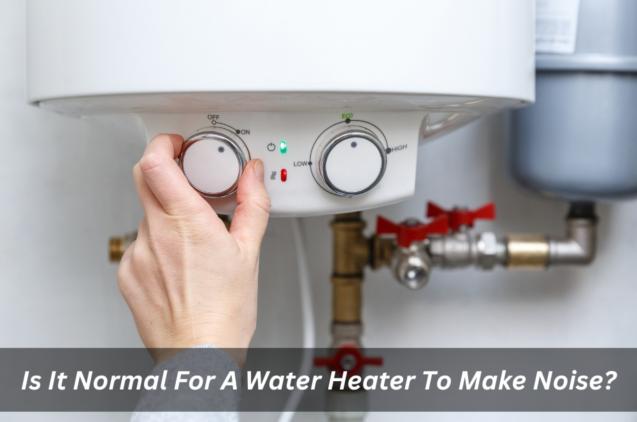
How To Choose Between Gas & Electric Hot Water System
By Sydney Hot Water Systems|November 11, 2022
There are a number of different types of hot water systems available - solar hot water systems (solar panels), heat pump hot water systems, gas and electric. Each one has its own benefits that make it the best choice for your home. Which type of hot water system should you choose? Learn about the differences between gas-fired and electric hot water heaters to determine which is right for you.
See how they compare in terms of the energy efficiency hot water systems and running cost over time. We'll also help you find the best match for your needs, whether those might be for new construction or an existing house.
The first thing you'll want to do when you want to buy and install a hot water heater is to measure where it will go in your home. You can't just stick a gas tank anywhere because it requires electrical connections, hot water outlets and vents.
The same holds true for electricity, so you have to know how much space you'll need before making any decisions on what to use.
Then you'll need to decide if you'd like to have a constant flow of hot water or if you prefer a variable flow. Finally, you'll want to choose either a tankless model or a traditional tanked unit.
Between gas or electric hot water systems, choosing the right option depends on a number of variables such as availability of space, budget, and lifestyle requirements. It is highly recommended to hire a hot water specialist if you’re unsure what to do.
Renewable Energy refers to any kind of energy that can be replenished naturally or through some form of human intervention. Examples include wind power, solar power, hydroelectricity, geothermal power and biomass.
Hot water has become essential in our daily lives due to its convenience, safety, and reliability. Most households rely heavily on their hot water systems and want them to operate stably and efficiently.
Gas hot water system
Gas hot water systems use natural gas in place of electricity for heating water and supplying heat energy to buildings. With these systems, only a fraction of the fuel is burned, so less emissions occur than would be produced by an equivalent electric storage system that uses all the power consumed to produce heat on-site.
A gas hot water furnace comes with a built-in thermostat controller and is connected to a gas line. It comes in two basic models: storage tanks and tankless units. In a storage tank, hot water is stored in a large reservoir from which it's piped into fixtures as needed.
Some storage tank furnaces have separate controls for hot and cold outdoor taps, while others have a single control that regulates both taps simultaneously.
In a tankless system, hot water is produced at the fixture instead of being stored in a separate vessel. Tankless units provide instant hot water every time without requiring a preheating cycle. They're also more efficient than storage tank systems and produce less heat waste.
These units generally require an external source of hot water for initial startup. After the initial supply runs out, a tankless system continues to deliver heated water through a circulation loop. Because this method maintains a steady stream of hot water, tankless systems are ideal for residential applications.
Electric hot water systems
Electric hot water systems are water heating devices that transfer heat into the water using electricity instead of fuel combustion. It can be used for domestic purposes such as bathtubs, showers, washing machines, or dishwashers.
They may also be used in industrial settings for large-scale processes such as laundry drying, sterilizing medical equipment, cleaning glassware, brewing beer or producing pulp.
There are three different ways to electrically heat water. One way is called continuous flow system immersion cooling, wherein a water coil or immersion pipe absorbs heat directly from the surrounding air. Another type uses a finned copper tube filled with water that transfers heat to the water flowing inside.
And the third utilizes a series of coils embedded within the hot water pipes that absorb heat from the water passing through. All three types work similarly, but each one has its advantages and disadvantages.
Have your hot water service before installing any new elements. This will include valves, faucets, fittings, and water pressure.
See how they compare in terms of the energy efficiency hot water systems and running cost over time. We'll also help you find the best match for your needs, whether those might be for new construction or an existing house.
The first thing you'll want to do when you want to buy and install a hot water heater is to measure where it will go in your home. You can't just stick a gas tank anywhere because it requires electrical connections, hot water outlets and vents.
The same holds true for electricity, so you have to know how much space you'll need before making any decisions on what to use.
Then you'll need to decide if you'd like to have a constant flow of hot water or if you prefer a variable flow. Finally, you'll want to choose either a tankless model or a traditional tanked unit.
Between gas or electric hot water systems, choosing the right option depends on a number of variables such as availability of space, budget, and lifestyle requirements. It is highly recommended to hire a hot water specialist if you’re unsure what to do.
Renewable Energy refers to any kind of energy that can be replenished naturally or through some form of human intervention. Examples include wind power, solar power, hydroelectricity, geothermal power and biomass.
Hot water has become essential in our daily lives due to its convenience, safety, and reliability. Most households rely heavily on their hot water systems and want them to operate stably and efficiently.
Gas hot water system
Gas hot water systems use natural gas in place of electricity for heating water and supplying heat energy to buildings. With these systems, only a fraction of the fuel is burned, so less emissions occur than would be produced by an equivalent electric storage system that uses all the power consumed to produce heat on-site.
A gas hot water furnace comes with a built-in thermostat controller and is connected to a gas line. It comes in two basic models: storage tanks and tankless units. In a storage tank, hot water is stored in a large reservoir from which it's piped into fixtures as needed.
Some storage tank furnaces have separate controls for hot and cold outdoor taps, while others have a single control that regulates both taps simultaneously.
In a tankless system, hot water is produced at the fixture instead of being stored in a separate vessel. Tankless units provide instant hot water every time without requiring a preheating cycle. They're also more efficient than storage tank systems and produce less heat waste.
These units generally require an external source of hot water for initial startup. After the initial supply runs out, a tankless system continues to deliver heated water through a circulation loop. Because this method maintains a steady stream of hot water, tankless systems are ideal for residential applications.
Electric hot water systems
Electric hot water systems are water heating devices that transfer heat into the water using electricity instead of fuel combustion. It can be used for domestic purposes such as bathtubs, showers, washing machines, or dishwashers.
They may also be used in industrial settings for large-scale processes such as laundry drying, sterilizing medical equipment, cleaning glassware, brewing beer or producing pulp.
There are three different ways to electrically heat water. One way is called continuous flow system immersion cooling, wherein a water coil or immersion pipe absorbs heat directly from the surrounding air. Another type uses a finned copper tube filled with water that transfers heat to the water flowing inside.
And the third utilizes a series of coils embedded within the hot water pipes that absorb heat from the water passing through. All three types work similarly, but each one has its advantages and disadvantages.
Have your hot water service before installing any new elements. This will include valves, faucets, fittings, and water pressure.



